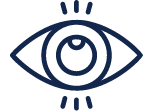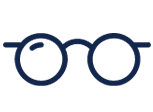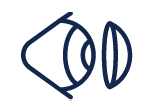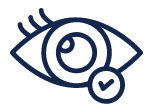What We Offer
We’re Keeping Your Vision Clear
At O’Fallon Family Eyecare, we offer comprehensive eye care services for the whole family. From routine eye exams and vision screenings to managing eye conditions and fitting glasses or contact lenses, our team provides personalized, high-quality care using the latest technology.

Eye Exams
Regular eye exams are essential for maintaining clear vision and overall eye health at every age. At O’Fallon Family Eyecare, we provide comprehensive eye exams for both adults and children, ensuring early detection of vision changes and eye conditions.

Medical Eye Care
We provide expert medical eye care for conditions like dry eye, glaucoma, diabetic eye disease, and more. Using advanced technology and a personalized approach, we diagnose, manage, and treat a wide range of eye health concerns to help you see clearly and comfortably.

Glasses
We offer a wide selection of stylish, high-quality frames and lenses to fit your vision needs and personal style. Whether you need everyday glasses, blue light protection, or specialty lenses, our team is here to help you see clearly and confidently.

Contact Lenses
Discover the freedom and convenience of contact lenses at O’Fallon Family Eyecare! Our expert team provides personalized contact lens fittings, training, and ongoing care to ensure comfort and clarity.

Myopia Control
Our myopia control solutions help manage and slow the progression of nearsightedness in children and young adults through early intervention. With advanced treatments like special lenses and orthokeratology, we work to protect your child’s vision for the future.

Dry Eye Treatment
Say goodbye to dry, irritated eyes with personalized dry eye treatment at O’Fallon Family Eyecare. We offer advanced solutions to relieve discomfort and restore your eye health, from prescription eye drops to specialty treatments.
